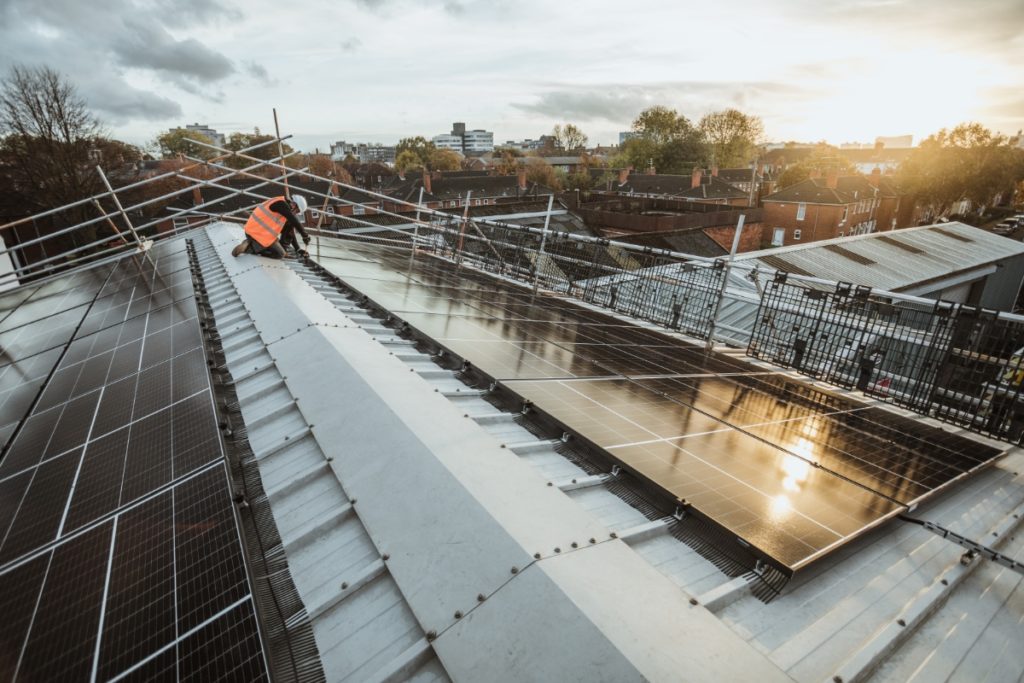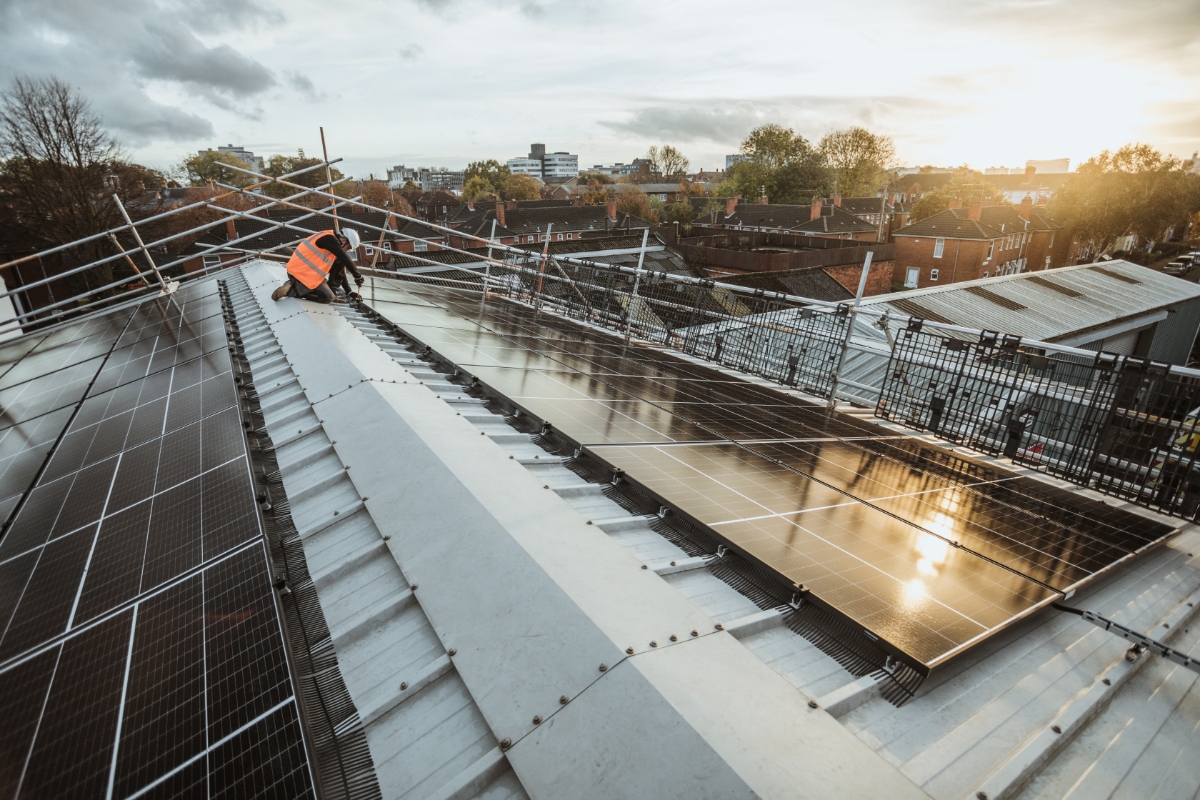Many businesses in Hull and Leeds are turning to commercial solar panels to minimise their environmental impact, become more sustainable, and lower their energy costs. When deciding to invest in commercial solar panels and understanding how much money they can save your business, it is important to know how much energy commercial solar panels can generate.
An Introduction to Commercial Solar Panels
As opposed to domestic solar panels, which are designed for use on a smaller scale to meet the energy needs of individual households, commercial solar panels are predominantly installed on larger buildings such as office complexes, manufacturing facilities, and warehouses. The larger size of commercial solar panels and their higher energy specifications allow them to generate significantly more electricity compared to domestic panels, making them perfect for business use.
How Are Solar Panel Powers Rated?
The power output of a solar panel is usually measured in Watts (W) or Kilowatts (kW), where 1 kW equals 1,000 watts. This measurement shows the maximum amount of electricity the panel can produce under perfect conditions. These conditions include bright sunlight with an intensity of 1000 watts per square metre, a temperature of 25°C (77°F), and average atmospheric conditions. These Standard Test Conditions (STC) help manufacturers provide a consistent way to compare different solar panels, although, in general use, weather, shading, and other factors can affect how much electricity the panels generate.
Power Ratings for Commercial Solar Panels
Commercial solar panels are generally larger and more powerful than those used in homes. Here are some common power ratings for commercial solar panels and their typical uses:
250W-300W Panels
These are often used in smaller commercial installations or in situations where space is limited. They provide a modest amount of power and are suitable for businesses with lower energy needs or smaller roof areas.
350W-400W Panels
These are more commonly used in many commercial projects. They offer a good balance of size and efficiency, making them ideal for medium-sized businesses that want to optimise their energy production without requiring too much space.
400W-450W Panels
These panels are more efficient and often used in larger commercial installations. They generate more power per panel, which is beneficial for businesses with higher energy demands and more available installation space.
450W-500W Panels
These are some of the most powerful solar panels available currently. They are used in large-scale commercial and industrial projects where maximum energy output is essential. These panels are ideal for companies looking to generate significant amounts of electricity and achieve substantial cost savings on their energy bills.
Factors that affect Solar Power Output
There are a few factors that can affect how much energy a commercial solar panel produces as well as their efficiency:
Location & Sunlight
The amount of sunlight varies across the UK, affecting solar panel performance. Southern regions receive more sunlight compared to northern areas. The UK’s seasonal changes also impact sunlight exposure, with longer daylight hours in the summer boosting energy production, while shorter, cloudier winter days result in less output.
Angle & Orientation
For maximum efficiency in the UK, solar panels should be installed at an angle that matches the location’s latitude, typically between 30 and 40 degrees. Panels should face south to capture the most sunlight throughout the day. Proper positioning helps ensure panels receive optimal sunlight exposure, which is crucial for maximising energy production.
Temperature
In the UK, cooler temperatures generally benefit solar panel efficiency. Although we don’t experience extreme heat, warmer summer temperatures can still slightly reduce panel efficiency.
Shading & Obstructions
Shading from nearby buildings, trees, or other structures can significantly reduce the energy output of solar panels. It’s important to install panels in locations free from obstructions, ensuring maximum sunlight exposure and optimal energy production.
Condition & Cleanliness
Keeping solar panels clean and in good condition is vital for their performance. When installed correctly, solar panels will work well for years with little maintenance. However, they do need some maintenance, as damage, dust or debris can reduce their efficiency and output. This includes inspecting for any damage that might have been caused by harsh weather conditions typical in the UK.
Calculating the Total System Size
By multiplying the number of panels you have by their individual power rating, you can work out the total size of your commercial solar power system:
50 300W panels: 500x300W= 15,000W or 15kW
This equates to approximately 73.5 – 82.5 kWh of energy generated per day.
100 350W panels: 100×350W= 35,000W or 35kW
This equates to approximately 171.5 – 192.5 kWh of energy generated per day.
200 450W panels: 200×450W = 90,000 = 90,000W or 90kW
This equates to approximately 441 – 495 kWh of energy generated per day.
Benefits of Commercial Solar Panel Installation
With power ratings typically between 250W and 500W per panel, commercial solar systems can produce substantial amounts of electricity, providing significant reductions in energy costs. The efficiency of these systems depends on factors such as location, angle and orientation, temperature, and shading. By carefully optimising these factors, businesses can achieve a higher energy output and better financial savings, contributing to sustainability.
Commercial Solar Panel Specialists in Hull & Leeds
If you’re looking to invest in commercial solar panels for your business, our expert team at GW are here to help. At GW we can guide you through the entire process, from initial consultation to installation and ongoing support. We will assess your energy needs, property layout, and budget to design a system that maximises energy production and efficiency.
Get in touch with us for any further information or to discuss your project.





